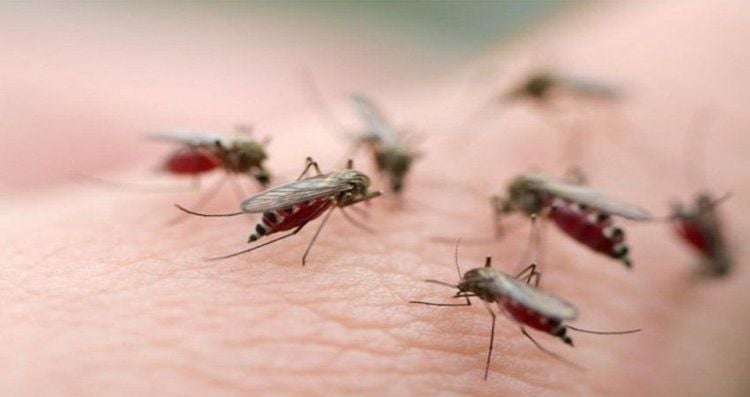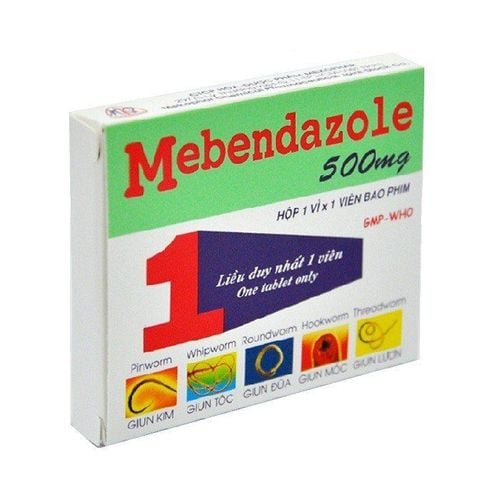1. How Do Parasites Enter the Body?
1.1. Through the Digestive Tract
- Hookworms: These parasites enter the body through contaminated water, fruits, and vegetables. Once inside, they attach to the wall of internal organs and suck the host's blood to survive.
- Ascaris: This is the most common roundworm in the internal organs. It ranges from 15 to 35 cm long and is typically transmitted through ingested food. The eggs hatch and penetrate the wall of internal organs, entering the bloodstream. From there, they travel to the lungs, where they are coughed up, swallowed again, and continue their journey back to the internal organs.
- Tapeworms: These parasites also enter the body through contaminated food. They can mature within 3 to 4 months and live in the host for up to 25 years. Tapeworm eggs can be expelled through feces, survive on plants, and may be ingested by livestock, which can further transmit them to humans.

- Giardia lamblia: This protozoan parasite can be found in drinking water. In the human body, it grows in the internal organs and may cause Giardia infections.
- Amoebic Dysentery: This parasite is mainly transmitted to humans from water, humid environments, and soil, and can infect fruits and vegetables.
1.2. Through the Skin
- Scabies: This parasite is transmitted through skin contact, where scabies lay their eggs on the human skin, causing reactions and skin inflammation.
- Pinworms: The most common type of parasite, pinworms typically enter through external wounds or scratches. They lay their eggs around the anus, causing it to itch. The small worms can spread infection through the hands.
- Schistosomiasis: These worms live in water, and when a person comes into contact with contaminated water, they can penetrate the skin.
- Mosquito-borne larvae: Mosquitoes carry these parasites, which are transmitted through bites. Once in the bloodstream, the larvae enter the lymph nodes, particularly in the thighs, where they can develop into worms over the course of a year.
If the body becomes infected with parasites and the infection is not detected and treated promptly, it can lead to serious health issues. Being aware of the basic signs of parasite infection is vital for effective treatment.

2. Signs of Parasitic Infection
Here are the eight most common signs of parasitic infection:
2.1. Skin Diseases
Skin problems caused by parasites can include red rashes, eczema, and other types of skin allergies. Additionally, the waste products of parasites that accumulate just beneath the skin can elevate eosinophil levels in the blood, leading to conditions such as ulcers, swelling, and skin lesions.
2.2. Poor Digestion
Poor digestion is a common sign of intestinal parasites, which may cause inflammation and chronic diarrhea. The growth of parasites can also release toxic substances, resulting in symptoms like chronic constipation, bloating, vomiting, and a burning sensation in the stomach.
2.3. Anal Itching
Pinworms specifically cause anal itching. Unlike other parasites, pinworms do not enter the bloodstream and cannot survive in other parts of the body. They lay eggs outside the body, usually around the anus, leading to itching and discomfort.
2.4. Fatigue
A constant feeling of fatigue, even after sufficient eating and sleeping, is often related to intestinal worms that deplete the body of nutrients by consuming the nutritious food ingested.

2.5. Persistent Hunger
Parasitic infections can lead to unexpected changes in eating habits, particularly a continuous feeling of hunger. Infections with tapeworms or roundworms often result in eating more than usual while still experiencing weight loss. This occurs because parasites consume a significant portion of the nutrients from food, leaving the host feeling hungry despite consuming more.
2.6. Teeth Grinding
Abnormal teeth grinding, especially in children during sleep, has been related to parasitic infections. A health study conducted in the United States in 2010 highlighted this correlation.
2.7. Anemia
Infection with intestinal roundworms or whipworms can lead to iron deficiency in the body, resulting in anemia.
2.8. Mood Changes
It is common for individuals with parasitic infections to experience mood changes, such as feelings of anxiety and insecurity, often associated with digestive issues. The intestines contain neurons and neurotransmitters crucial for a healthy nervous system. The toxic waste released by parasites can contribute to feelings of heaviness, stress, and depression.
Thus, the above article has helped you answer questions about the most common signs of parasitic infection. If you notice any of these signs in your body, it is important to see a doctor promptly for effective treatment.
Vinmec International General Hospital offers comprehensive services for the examination, treatment, prevention, and early detection of various digestive diseases. With modern technical facilities and a team of experienced specialists, it is a trusted choice for your health care needs.
To arrange an appointment, please call HOTLINE or make your reservation directly HERE. You may also download the MyVinmec app to schedule appointments faster and manage your reservations more conveniently.








